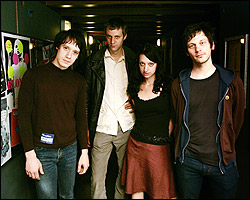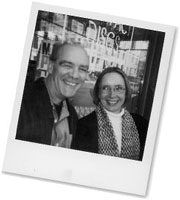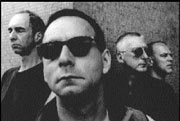I AM A SERIAL vegetarian. Influenced mainly by the kinds of arguments in Diet for a Small Planet, I flirt with it, and from time to time, I settle down and commit. I live with a firm pescatarian (meaning the only meat he eats is from the sea), so at home at least, I only eat fish and soy products that pretend to be meat. After my friend Charlie and I accompanied a group from the Puget Sound Community School on a field trip to Draper Valley Farms, however, I just haven’t been able to get near the fake chicken nuggets in my freezer.
PSCS is a private school in the University District for kids between the ages of 11 and 18. The school operates on the idea that people learn best when they are actually interested in what they’re learning about. Novel concept, right? Partially inspired by one student’s decision to not eat any animal that he hadn’t personally killed at least one of, educators Nic Warmenhoven and Edd Key arranged for about 10 of their older, high-school-level students to visit Washington’s only locally owned chicken processing plant. I went along because I’m interested in how—and when—we as a species will ever get past our need to include some variety of meat product in every meal. It seems to me that the growing number of teenage vegetarians can effect some pretty meaningful change to this end, and I don’t really care whether or not their activism is sometimes rooted in a desire to piss off their parents or to fit into a certain scene.
BACK AT PSCS after our tour of Draper Valley, which took all of 30 minutes and brought one student to tears within the first two (she sat out the remainder of the tour in the board room), Ani told me in a confident, matter-of-fact tone that Draper was a lot cleaner and more efficient than Tyson and Foster, the two big, bad megaprocessors. Vegan for two years, she became a vegetarian at age 9 and was “freegan” for a while. For her, this meant not paying for meat or animal products but eating them if they were left over or destined for the trash, which admittedly doesn’t sound too radical if you’re living with your parents. “It’s not death that bothers me, because I think that’s a really important part of life, it’s how it’s done,” she told me as she finished her soy yogurt.
On the other side of the room, Thomas, the one who won’t eat what he hasn’t looked in the eye, was attempting to open a can of baked beans with a steak knife. “I just need to be sure that we’re both OK with the exchange of life energy,” he explained, and then apologized for sounding New Age–y.
Zac crunched on a carrot when we talked; that alone seemed like extremist behavior for a 16-year-old. “I was expecting it to be a lot worse. I think it’s just important to be aware of the process, but I’ll probably eat some chicken later today,” he said.
Another student said he was most affected by the human element—the factory workers standing shoulder to shoulder for hours on end, slicing poultry parts and preparing Styrofoam trays. More than 600 people earn a living at Draper Valley. Many of them are immigrants. Chicken on Styrofoam trays? Hey, that’s the American way, right?
SUGGESTING THAT THESE kids aren’t necessarily nutrition warriors, Warmenhoven pointed out that he’s seen them consume their fair share of ramen noodles and Frito Lay chips. Fair enough, but they’re aware, outspoken, and educated, and a good number of them eat tofu and wear canvas sneakers instead of leather ones. I think it matters—or maybe it’s just that when I’m frustrated with my generation (myself included) and I think of theirs aging into a position of power, I hope it will matter.







